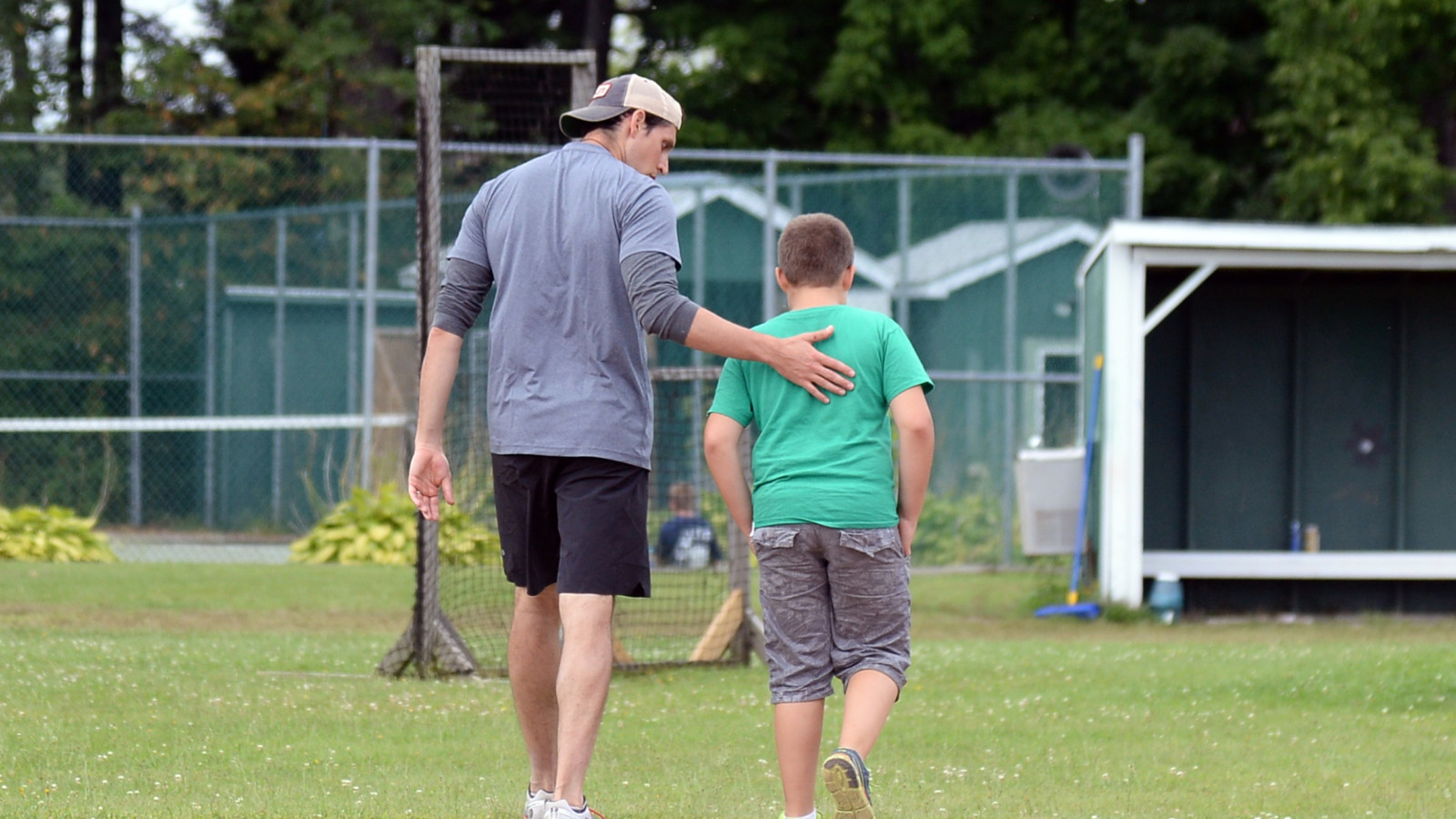President Biden did something remarkable on the eve of his inauguration: he paused to remember the 400,000 lives lost to Covid-19. And, he urged the nation to do the same. The National Memorial exemplified something we sorely need now: grief leadership.
Some of our greatest historical moments have involved strong grief leadership, from the Gettysburg Address to RFK’s remarks after Martin Luther King’s assassination. We have seen politicians and pastors model vulnerability, offer hope, and share courage to move forward.
President Biden carried on that tradition, saying, “To heal, we must remember.” He is right, of course. Yet, we must do more than honor the people who have died. We must also remember the millions who are grieving these losses — and, most importantly, the children.
Even before COVID-19 there were more than five million children in the U.S. grieving the death of someone they loved. By age 18, one in five kids in the country will experience the death of someone significant in their lives. The pandemic has significantly multiplied that number, with more vulnerable communities often bearing the greatest burden of loss.
Yet in moments of national mourning, we rarely hear leaders speaking directly to the young people at home who are quietly taking it all in. At funerals, where young children in tight-fitting shoes are wedged into rows of weeping strangers, rarely are remarks tailored especially for them. Kids are so often forgotten in those moments — pulled along in the tide of adult grief, alone and hurting in their own way.
There are serious long-term consequences for children who are not given an opportunity to process their grief, such as poor school performance, low self-esteem, and even increased incarceration, drug use and suicide rates. The flip side is that, with the right support and mindset, grief can lead to resilience.
It can start with acknowledging the loss, and speaking to children directly. For example, after the Space Shuttle Challenger disaster, President Reagan directly addressed the “schoolchildren of America.” He recognized the confusion of grief, as well as the legacy of the Challenger crew, who were “pulling us into the future, and we’ll continue to follow them.” He recognized that it was a defining moment for children who would vividly remember where they were when they heard the news.
For today’s generation, Covid-19 will be even more defining than the Challenger was for mine. Now, as the U.S. faces an unprecedented wave of death – thousands every day – our nation’s children need authentic grief leadership from adults on both sides of the aisle, as well as the adults in every home in this country. We all need to show them that compassion is not political. It’s human.
Here are some ways to be a grief leader for children:
- Get curious. Find out what they know and how they feel. Give them your full attention. Show them what they’re saying is important.
- Answer their questions. Be honest and age-appropriate. Give them the level of detail that makes sense for their level of understanding.
- Acknowledge their feelings. Sometimes simply normalizing a feeling for them helps. “I’m sad, too” or “this is really hard” can go a long way.
- Give hope. Once the feelings have been validated, it is important to offer a vision of the future that keeps them moving forward.
The invitation for young people to share their feelings could help create the cadre of empathetic humans our nation will need to confront the many long-term challenges ahead. It also can unify us so we are better able to address those challenges together.
Grief is universal, one of the few things that still bridges divides. Sharing our grief can offer a path to Biden’s vision of a more unified nation. By starting his presidency with a memorial, Biden sent a strong signal. But, while he can set a tone, he can’t single-handedly change a culture.
We all need to be grief leaders for the kids in our lives. They are watching. They hear the news and the conversations of adults around them. Our response to their grief may define how they adapt to loss for the rest of their lives.
It’s important that we get this right. If we do, as VP Harris said, we may “emerge from this ordeal with a new wisdom.”
Now, I’m calling on all of us to honor our hard-won wisdom by creating a more grief-aware culture. Whether you head a company, school, place of worship, team, or family, this is your moment to help people of every age face our grief together.


